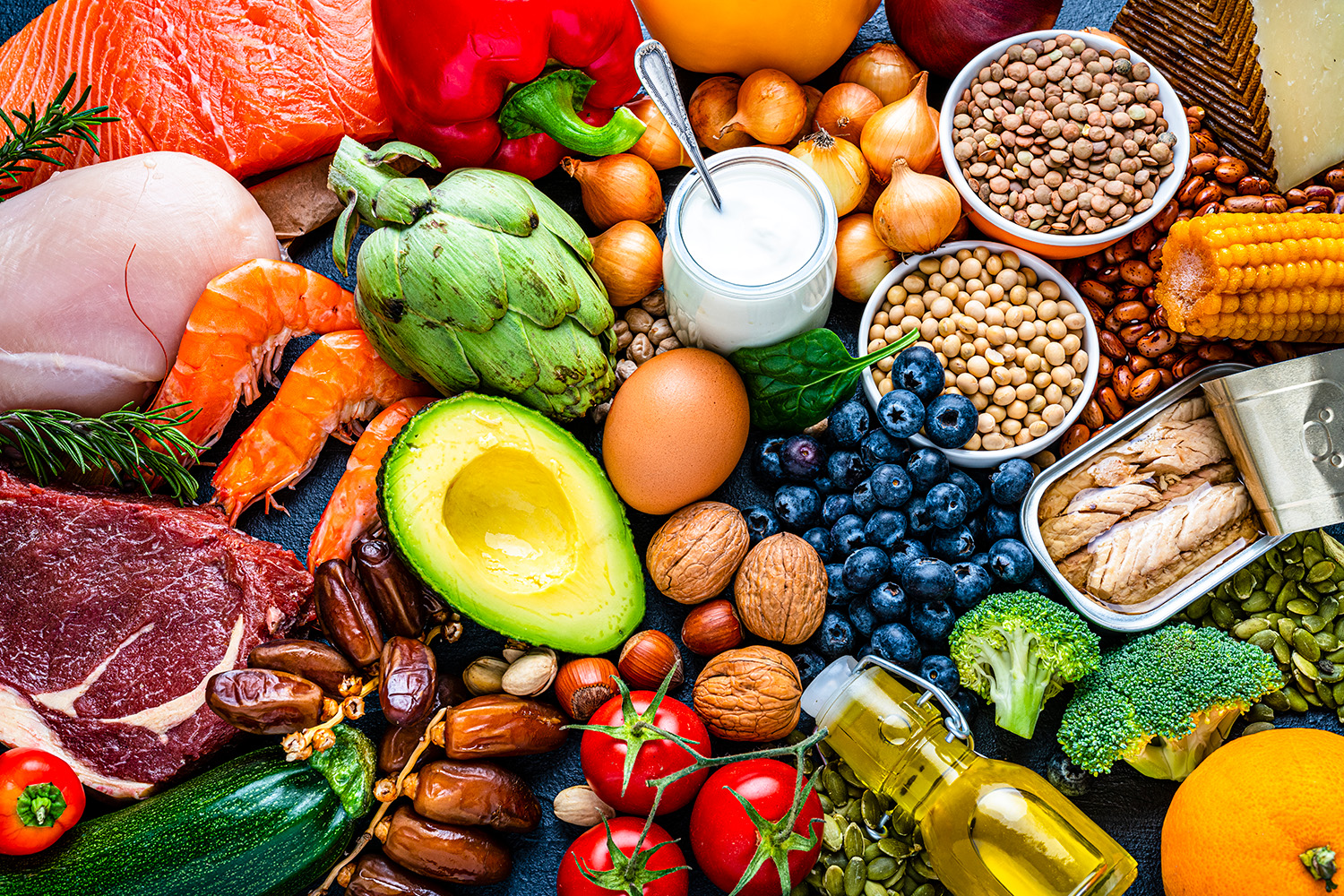Introduction
In today’s fast-paced world, we often eat on autopilot—grabbing whatever is convenient without considering how it fuels our bodies and minds. However, mindful nutrition is a game-changer. It’s not just about what you eat but how you eat and how your body processes macronutrients—proteins, fats, and carbohydrates—to optimize both mental performance and physical health.
This guide will break down the macro approach to nutrition, explaining how balance in proteins, fats, and carbs fuels energy, cognitive function, and overall well-being. Plus, you’ll get practical tips on mindful eating to take your health and performance to the next level.
The Power of Macronutrients in Mindful Nutrition
Macronutrients—proteins, fats, and carbohydrates—are the three essential components of every diet. They work together to provide sustained energy, mental clarity, and peak physical function. But getting the right balance is key.
1. Protein: The Building Block for Strength and Focus
Protein is essential for muscle repair, immune function, and neurotransmitter production. Consuming high-quality protein sources helps regulate mood, improve focus, and support lean muscle development.
Best Protein Sources:
- Lean meats (chicken, turkey, grass-fed beef)
- Fish (salmon, tuna, sardines)
- Eggs
- Plant-based options (lentils, quinoa, chickpeas, tofu)
- Dairy (Greek yogurt, cottage cheese)
Protein & Mental Performance:
Protein contains amino acids like tyrosine and tryptophan, which help produce dopamine and serotonin—critical neurotransmitters that regulate mood, motivation, and cognitive function.
2. Healthy Fats: Brain Fuel for Focus and Longevity
Fats are often misunderstood, but they are critical for brain health, hormone balance, and sustained energy levels. Healthy fats support memory, concentration, and mood stability.
Best Sources of Healthy Fats:
- Avocados
- Nuts (almonds, walnuts, cashews)
- Seeds (chia, flax, pumpkin)
- Olive oil & coconut oil
- Fatty fish (salmon, mackerel)
Fats & Mental Performance:
Omega-3 fatty acids, found in fish, flaxseeds, and walnuts, enhance cognitive function, reducing brain fog and improving focus. Studies also show that healthy fats support neuroplasticity, helping your brain adapt and perform optimally under stress.
3. Carbohydrates: The Primary Energy Source
Carbohydrates are the body’s main source of fuel, especially for the brain and muscles. However, the type of carbs you consume determines whether they enhance or hinder performance.
Best Sources of Complex Carbs:
- Whole grains (quinoa, brown rice, oats)
- Vegetables (sweet potatoes, leafy greens)
- Fruits (berries, bananas, apples)
- Legumes (beans, lentils)
Carbs & Mental Performance:
The brain relies on glucose for fuel, making carbs essential for mental alertness and cognitive endurance. Low-glycemic carbs (like quinoa and vegetables) provide steady energy without the crashes linked to refined sugar and processed foods.
How Mindful Eating Enhances Energy & Performance
Mindful eating is the practice of being fully present while eating—engaging all your senses and listening to your body’s hunger and satiety cues. By doing this, you optimize digestion, nutrient absorption, and energy levels.
Mindful Eating Tips for Peak Performance:
- Slow Down & Chew Thoroughly – Digestion starts in the mouth. Chewing well improves nutrient absorption and prevents bloating.
- Eliminate Distractions – Avoid eating while scrolling on your phone or watching TV. Instead, focus on the flavors and textures of your food.
- Recognize Hunger vs. Cravings – Ask yourself: “Am I truly hungry, or am I eating out of boredom, stress, or habit?”
- Balance Your Plate – Follow the macro approach by ensuring each meal includes protein, healthy fats, and complex carbs.
- Stay Hydrated – Dehydration can mimic hunger. Drink water consistently throughout the day.
- Practice Gratitude for Your Food – Acknowledging where your food comes from and its impact on your body enhances mindfulness and enjoyment.
Fueling for Physical & Mental Performance: The Ideal Meal Plan
Here’s a one-day mindful nutrition meal plan that balances macronutrients while supporting energy, focus, and endurance.
Breakfast: Brain-Boosting Energy
- Avocado & smoked salmon on whole-grain toast with eggs
- Green tea or black coffee for mental clarity
Lunch: Sustained Fuel
- Grilled chicken with quinoa, mixed greens, and a tahini dressing
- Herbal tea or lemon-infused water
Pre-Workout Snack:
- Banana with almond butter for quick energy and muscle recovery
Dinner: Recovery & Restorative Nutrition
- Grass-fed steak (or tofu for plant-based) with roasted sweet potatoes and steamed broccoli
- Side of guacamole for healthy fats
Evening Wind-Down Snack:
- Greek yogurt with walnuts and honey to support overnight recovery
Conclusion: Elevate Your Mind & Body with Mindful Nutrition
When you adopt a mindful approach to nutrition, you don’t just eat to survive—you eat to thrive. By balancing proteins, fats, and carbs, you fuel both your physical health and mental performance, ensuring steady energy, improved focus, and overall well-being.
Start small—practice mindful eating at one meal a day, incorporate more whole foods, and watch how your energy and performance transform. At Sonovi, we believe in a holistic approach to wellness, where food is more than fuel—it’s the foundation of a vibrant, high-performing life.
Are you ready to optimize your health through mindful nutrition? Share your thoughts in the comments and follow us for more performance-focused nutrition tips!






Leave a Reply